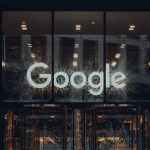There’s no doubt that the world of business is changing dramatically. But it’s not just the way we work that’s transforming, it’s our mindsets too.
For instance, today’s workers rarely join companies with the intent of staying in that job for life. The role and impact of the HR function have also undergone a remarkable transformation, says Julie Provino, an international HR leader and Founder of VeryHR.
HR professionals were once the gatekeepers and secretaries of the Personnel department. Today, they’ve adopted innovative tools and systems to adapt to these rapidly changing times and manage the subsequent pressures on businesses.
From the emergence of the Internet in the 90s, via today’s mobile and cloud technologies, to artificial intelligence (AI) and robotic process automation (RPA), we are increasingly using technology to gain competitive advantage. Today, we live in the information age. At the click of a button, we can generate in-depth statistical reports, access big data and make predictions about the future, all of which is hugely beneficial for businesses. The rise of bots streamlines organisational processes while adding an extra layer of efficiency, especially in terms of time, compliance and cost.
Standing here on the cusp of 2020 while contemplating all our technological advancements is utterly mind-blowing. I’m truly excited, albeit somewhat fearful of what 2020 will bring.
After all, technological advancements come at a price. The rapid accumulation of digital information and data hasn’t just affected the workplace in a big way. It’s also had a huge impact on how society functions. For example, concepts such as work-life balance and a 9 to 5 job are disappearing. These two approaches are merging into one way of life with workers enjoying increased flexibility. However, for this model to function properly, everyone needs to take more responsibility and manage their own time to get their work done.
Technological advancements come at a price. The rapid accumulation of digital information and data hasn’t just affected the workplace in a big way. It’s also had a huge impact on how society functions.
With the rise of campaigns like #Metoo and WikiLeaks, employers are starting to realise that there’s no clear divide between private and public domains – not online anyway. Even though security measures have been implemented to protect people’s personal data, comparatively little has been done to protect organisations. Anyone, anywhere can post anything on any medium. With the emphasis on freedom of information in the digital era, companies can no longer just sweep mistakes under the carpet. There’s never complete reassurance that something will be kept confidential once the legal paperwork has been signed. Of course, there are certain rules and regulations in place, but they don’t provide adequate protection against new methods of disseminating news.
I remember a time when one of my clients was targeted by someone, most likely a disgruntled former employee. This anonymous person had taken it upon him/herself to publish defamatory information via well-known social media platforms. Regardless of the language, the accusations made and the fact it was hugely damaging to the organisation’s internal brand, the company was powerless. Taking remedial action to stop this person spreading malicious content was impossible.
Unfortunately, there appears to be a trend for this sort of thing, and I’m seeing more and more of my clients being targeted. So, even though the #Metoo effect has raised awareness in society around important issues, wrongdoing still takes place. The truth is it’s becoming even more challenging to protect businesses and their employees.
[ymal]
Furthermore, there are individual workers to consider. In today’s always online working environment, advances in technology are placing greater demands on the workforce. Office hours aren’t as clear cut as they used to be. For example, an employee might be asked for an essential last-minute report late on a Friday afternoon or may receive an urgent request from the CEO on Sunday evening. Of course, if they decide to complete the task, they have less weekend time to themselves. But this is happening in many people’s working lives.
In the early 2010s, I managed an in-depth study investigating burnout in high performing employees. It quickly became clear that, with technology as the catalyst, our working lives were rapidly encroaching on our private lives. (Whether this is right or wrong is open to debate.) At the onset of the study, I surveyed over 300 individuals to find out if people were stressed and burnt out. And guess what? A whopping 80% of individuals responded that they were.
Today, stress and burnout are common illnesses for many people in all kinds of jobs, not just management roles. So how should businesses respond? First, there needs to be a general understanding that as humans, our biology hasn’t dramatically changed since prehistoric times. Our brains and bodies still function in much the same way. Several centuries ago, our most stressful situation would be triggered by having our lives threatened. Nowadays, our stress hormones are triggered multiple times daily. It’s also recognised that our brains assimilate as much information in one day than in a whole lifetime back in the 1800s. These two facts attest to the theory that technological advances are putting enormous pressure on the workforce.
Technological advances are putting enormous pressure on the workforce.
Burnout in organisations happens for three simple reasons:
- A person feels that their work doesn’t matter to the organisation
- An individual is not aligned with the organisation’s values and mission
- Someone simply doesn’t have time to recharge his or her batteries
All three points above require human intervention. Sometimes something as simple as a meaningful conversation to let someone know their work really is valued can go a long way. Having disengaged or disillusioned employees is quite possibly one of the biggest challenges today’s companies are facing.
Considering all the important points raised in this article, now is the ideal time for HR to reinvent itself. As we continue to adopt technological advancements and innovate, HR must strive to support everything that is human in the workplace. You could say it’s all about putting the human back into Human Resources.
We no longer work in hierarchical organisations governed by power/control paradigms – or at least, we shouldn’t. In the 2020s, the HR function needs to live and breathe an organisation’s culture, advocating internal values and the employment brand. HR must also focus on empowering individuals to speak out in a safe and respected manner – giving employees a voice to take responsibility for what’s going on in their working world, while providing mechanisms to eliminate the need to go public on company wrongdoings. Our mission is to help leaders, managers and individuals to transform their workplace and working patterns by setting healthy boundaries.
While I can’t predict exactly what’s going to happen in the next decade, I’m very excited about the opportunities that this new era will bring to the HR field.



















